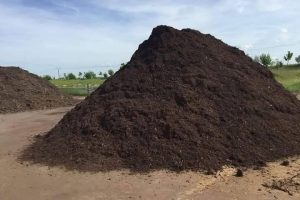
1. Cow Manure (🐄)
Advantages:
Improves soil structure:
Enhances soil properties such as aeration and water retention, especially beneficial for sandy soils lacking organic matter.
Slow nutrient release:
Decomposes slowly, providing a steady supply of nutrients to plants over time, reducing the need for frequent fertilization.
Suitable for organic farming:
Low salt and chemical content make it ideal for organic agriculture.
Milder odor:
Compared to poultry manure, it has a less pungent and more tolerable smell.
Disadvantages:
Lower nutrient content:
Contains relatively low levels of nitrogen (N), phosphorus (P), and potassium (K), making it less effective for immediate fertilization.
High moisture content:
Moisture levels can reach up to 85%, increasing weight and delaying decomposition.
Slow decomposition:
May not suit crops requiring quick nutrient availability.
Usage:
Best suited for long-term crops like trees and plantations requiring soil structure improvement.
—
2. Sheep Manure (🐑)
Advantages:
Nutrient balance:
Contains moderate levels of nitrogen, phosphorus, and potassium, making it suitable for most crops.
Faster decomposition:
Breaks down more quickly than cow manure, supplying nutrients at a faster rate.
Improves soil:
Increases organic matter without significantly affecting soil acidity.
Milder odor:
Less intense than poultry manure, making it suitable for fields near residential areas.
Disadvantages:
Limited quantity:
Sheep produce less manure than cows or poultry, making it harder to obtain in large amounts.
Weed seeds:
If not well-processed, it may contain weed seeds that can germinate in the soil.
Usage:
Ideal for seasonal crops such as vegetables and grains, offering balanced nutrient release.
—
3. Poultry Manure (🐓)
Advantages:
Rich in nutrients:
Contains the highest levels of nitrogen (N), phosphorus (P), and potassium (K), making it excellent for quick fertilization.
Promotes rapid crop growth.
Quick decomposition:
Releases nutrients rapidly, ideal for crops needing immediate nutrition.
Economic efficiency:
Due to its high concentration, small amounts yield great results.
Disadvantages:
Risk of plant burn:
High nitrogen content can harm plants if overused or unprocessed.
Strong odor:
Has an intense smell that can be unpleasant near populated areas.
Increased acidity:
Overuse may increase soil acidity, negatively affecting some crops.
Needs processing:
May contain harmful bacteria such as Salmonella and E. coli, requiring proper treatment before use.
Usage:
Primarily used for fast-growing crops like leafy vegetables and fruits.
General Tips:
Composting manure reduces odor and enhances effectiveness.
Mixing different types can provide varied benefits, balancing slow and quick decomposition.
Soil testing before application ensures the correct manure type meets crop needs.
Peoplesmind
